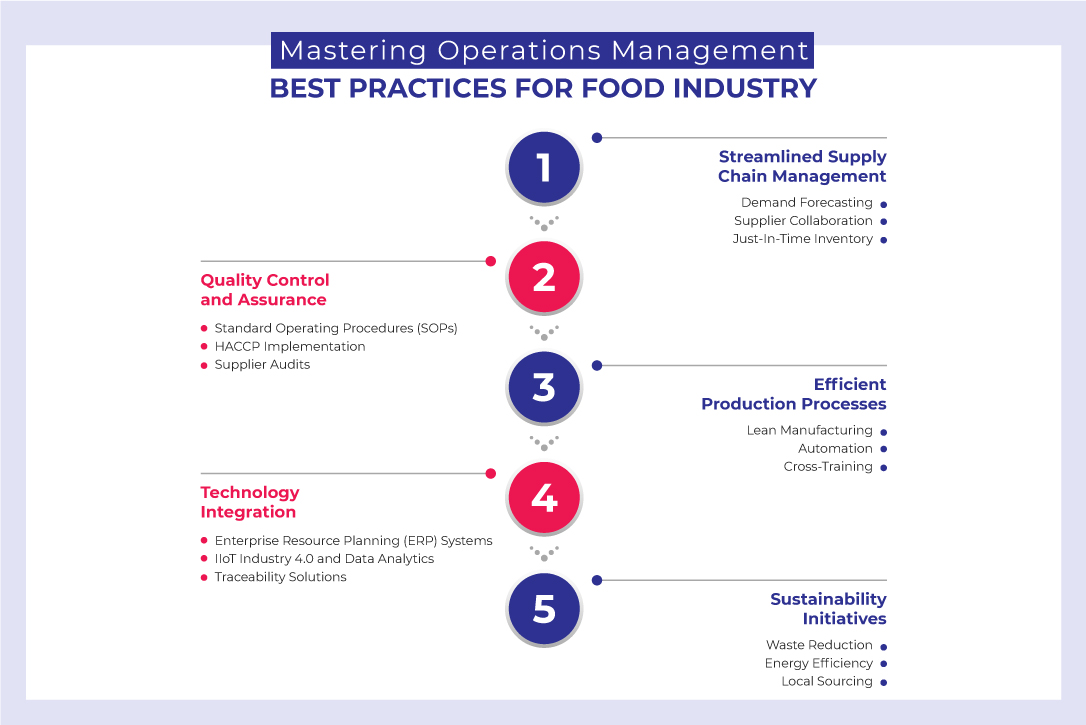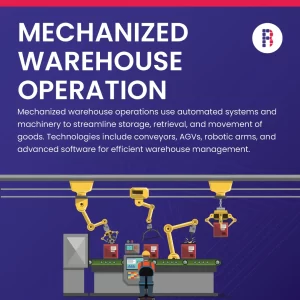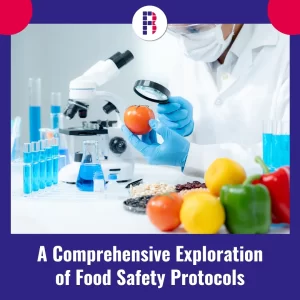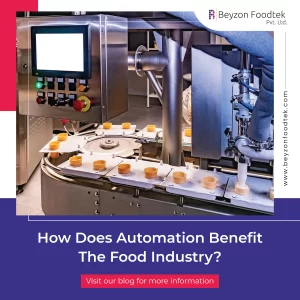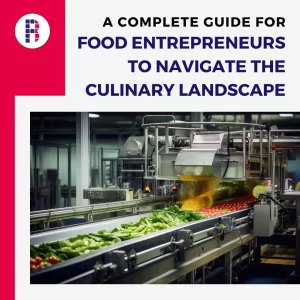Introduction
In the dynamic and competitive landscape of the food industry, effective operations management is the cornerstone of success. From sourcing ingredients to delivering products to consumers, every step of the supply chain requires careful planning, efficient execution, and continuous improvement. As a leading food consultancy agency, we understand the challenges faced by food businesses and have compiled a comprehensive guide to mastering operations management in the food industry. In this blog, we’ll explore the best practices that can help food companies optimize their operations and achieve excellence.
- Streamlined Supply Chain Management:A well-optimized supply chain is the backbone of any food business. To ensure a smooth flow of goods and minimize waste, consider these strategies:
- Demand Forecasting: Leverage data analytics and historical trends to predict demand accurately. This helps prevent overstocking or understocking, reducing both food waste and lost sales opportunities.
- Supplier Collaboration: Build strong relationships with suppliers. Collaborative partnerships can lead to better pricing, consistent quality, and faster response to changing demands.
- Just-In-Time Inventory: Adopt a just-in-time inventory system to minimize carrying costs and reduce the risk of perishable items going to waste.
- Quality Control and Assurance:Maintaining high-quality standards is non-negotiable in the food industry. Implement these practices to ensure your products consistently meet customer expectations:
- Standard Operating Procedures (SOPs): Develop and enforce SOPs for every aspect of production, from sourcing raw materials to packaging finished goods. Regular training and audits ensure adherence.
- HACCP Implementation: Hazard Analysis and Critical Control Points (HACCP) is a systematic approach to identifying and preventing potential hazards in the production process. Implementing HACCP principles enhances food safety and quality.
- Supplier Audits: Regularly assess your suppliers’ facilities and practices to verify their compliance with your quality standards.
- Efficient Production Processes:Optimizing your production processes can lead to increased output and reduced costs. Consider these strategies to boost efficiency:
- Lean Manufacturing: Implement lean principles to minimize waste, optimize workflows, and improve resource utilization.
- Automation: Integrate automation technologies wherever possible, such as automated packaging, labeling, and quality control systems.
- Cross-Training: Cross-train your employees to perform multiple tasks. This flexibility ensures smoother operations even during peak demand periods or employee absences.
- Technology Integration:Embrace technology to modernize your operations and enhance decision-making:
- Enterprise Resource Planning (ERP) Systems: ERP systems centralize data, enabling better visibility and control over various aspects of your business, from inventory management to finance.
- IoT and Data Analytics: Utilize Internet of Things (IoT) devices to monitor equipment and environmental conditions. Analyze the collected data to identify trends and areas for improvement.
- Traceability Solutions: Implement traceability technologies such as barcodes, QR codes, or RFID tags to track products throughout the supply chain, ensuring transparency and enabling efficient recalls if necessary.
- Sustainability Initiatives:In today’s environmentally conscious world, integrating sustainability into your operations is not just beneficial for the planet – it’s also a strategic advantage:
- Waste Reduction: Implement waste reduction strategies like composting, recycling, and repurposing food by-products.
- Energy Efficiency: Upgrade to energy-efficient equipment and lighting to reduce energy consumption and operational costs.
- Local Sourcing:Whenever possible, source ingredients locally to reduce the carbon footprint of transportation and support local communities.
Wrapping Up:
Operations management lies at the heart of success for food businesses. By adopting these best practices, your food company can enhance supply chain efficiency, maintain quality standards, optimize production processes, embrace technology, and contribute to sustainability. As a food consultancy agency, we’re committed to helping your business navigate these challenges and implement strategies that lead to operational excellence. Get in touch with us today to discover how we can partner in transforming your operations for a brighter and more prosperous future.
